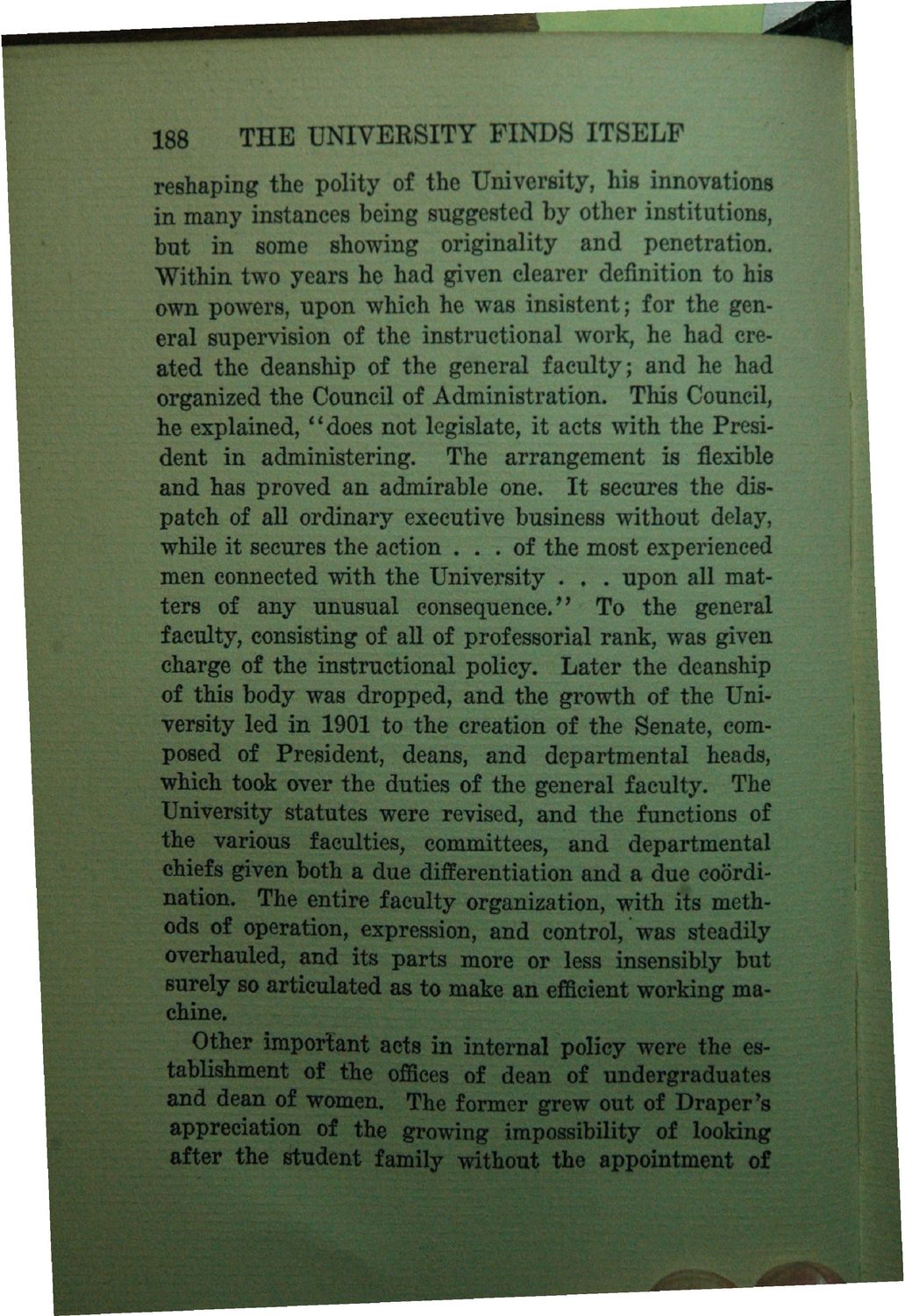| |
| |
Caption: Book - History of the University (Nevins)
This is a reduced-resolution page image for fast online browsing.

EXTRACTED TEXT FROM PAGE:
188 THE UNIVERSITY FINDS ITSELF reshaping the polity of the University, his innovations in many instances being suggested by other institutions, but in some showing originality and penetration. Within two years he had given clearer definition to his own powers, upon which he was insistent; for the general supervision of the instructional work, he had created the deanship of the general faculty; and he had organized the Council of Administration. This Council, he explained, "does not legislate, it acts with the President in administering. The arrangement is flexible and has proved an admirable one. I t secures the dispatch of all ordinary executive business without delay, while it secures the action . . . of the most experienced men connected with the University . . . upon all matters of any unusual consequence." To the general faculty, consisting of all of professorial rank, was given charge of the instructional policy. Later the deanship of this body was dropped, and the growth of the University led in 1901 to the creation of the Senate, composed of President, deans, and departmental heads, which took over the duties of the general faculty. The University statutes were revised, and the functions of the various faculties, committees, and departmental chiefs given both a due differentiation and a due coordination. The entire faculty organization, with lis methods of operation, expression, and control, was steadily overhauled, and its parts more or less insensibly but surely so articulated as to make an efficient working machine. Other important acts in internal policy were the establishment of the offices of dean of undergraduates and dean of women. The former grew out of Draper's appreciation of the growing impossibility of looking after the student family without the appointment of
| |